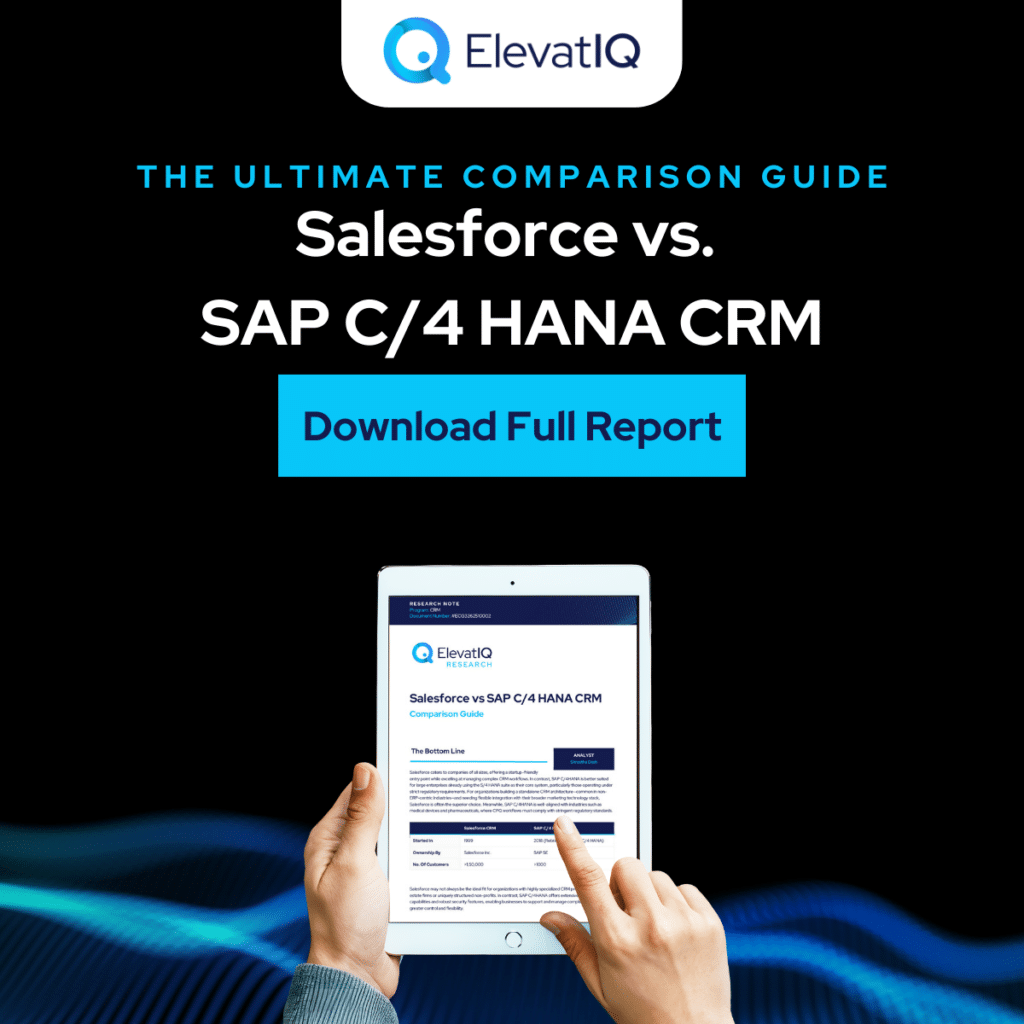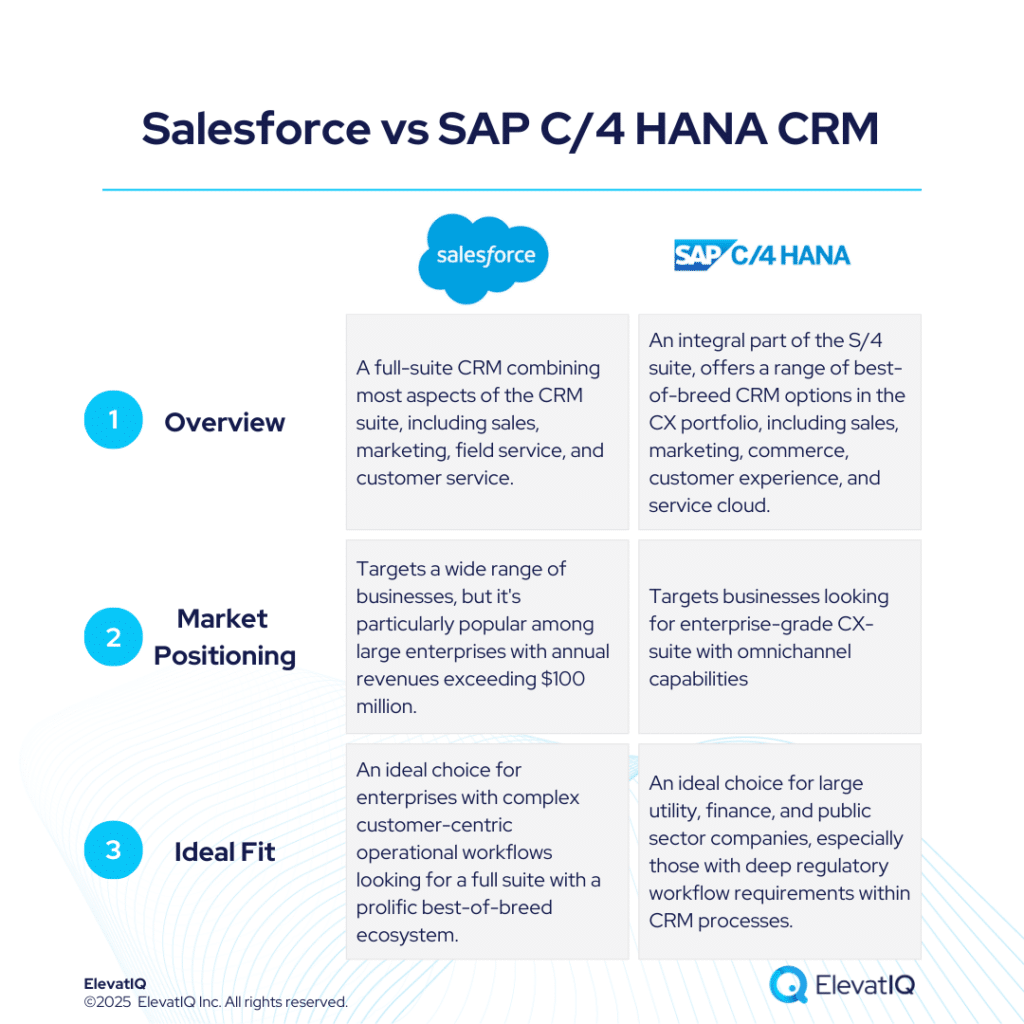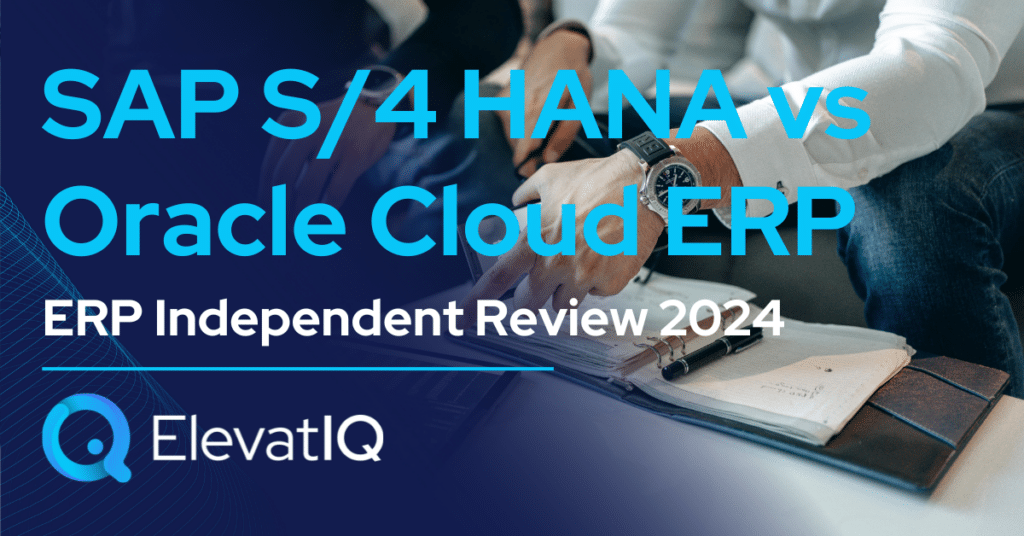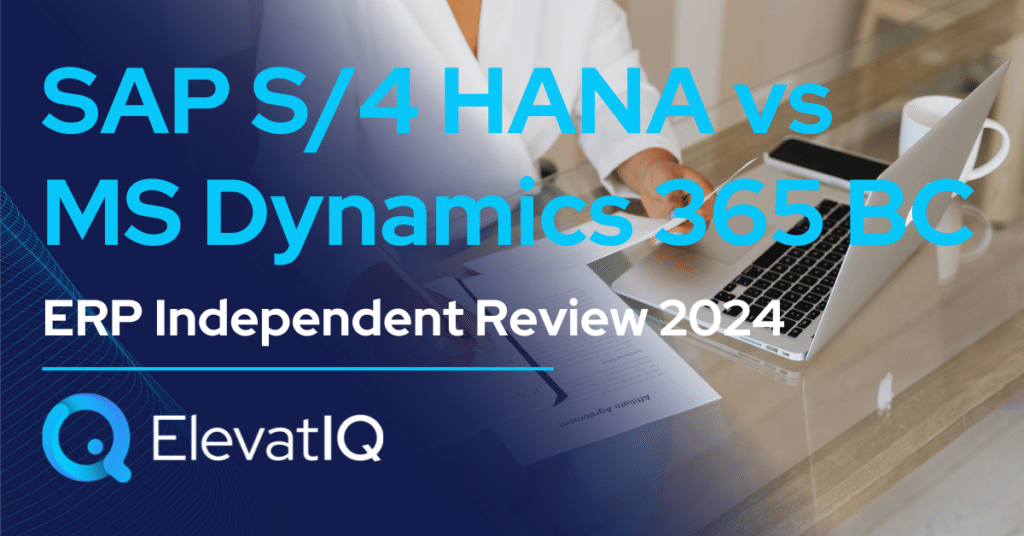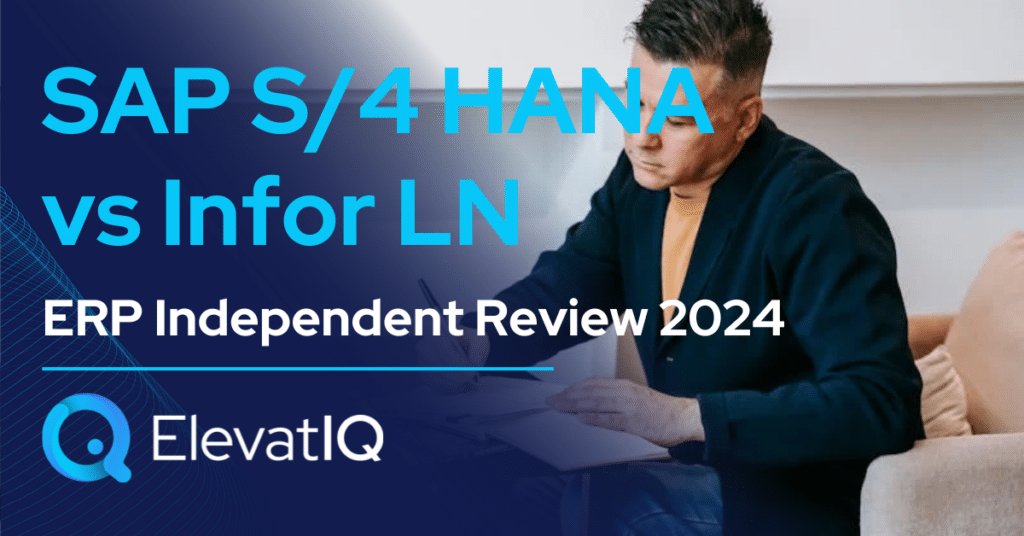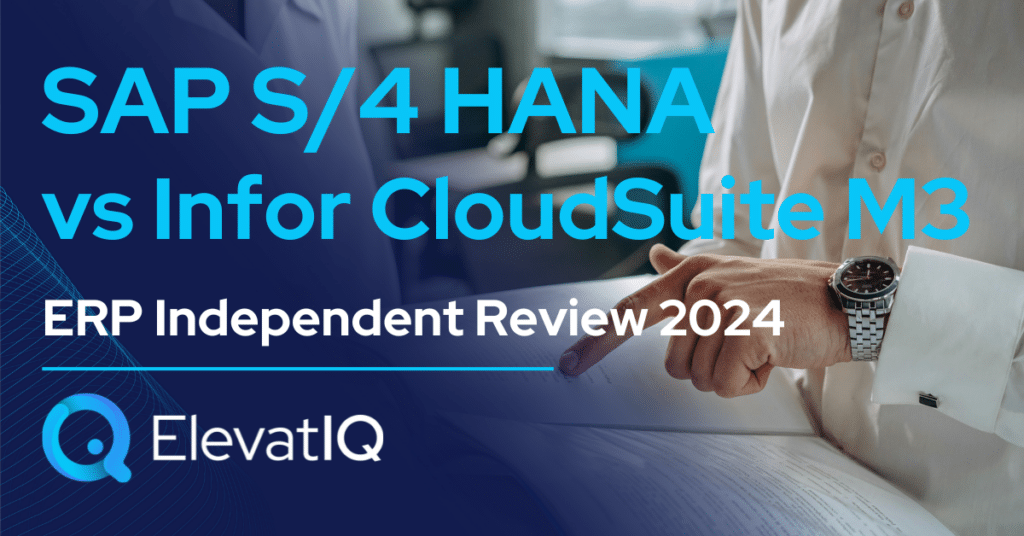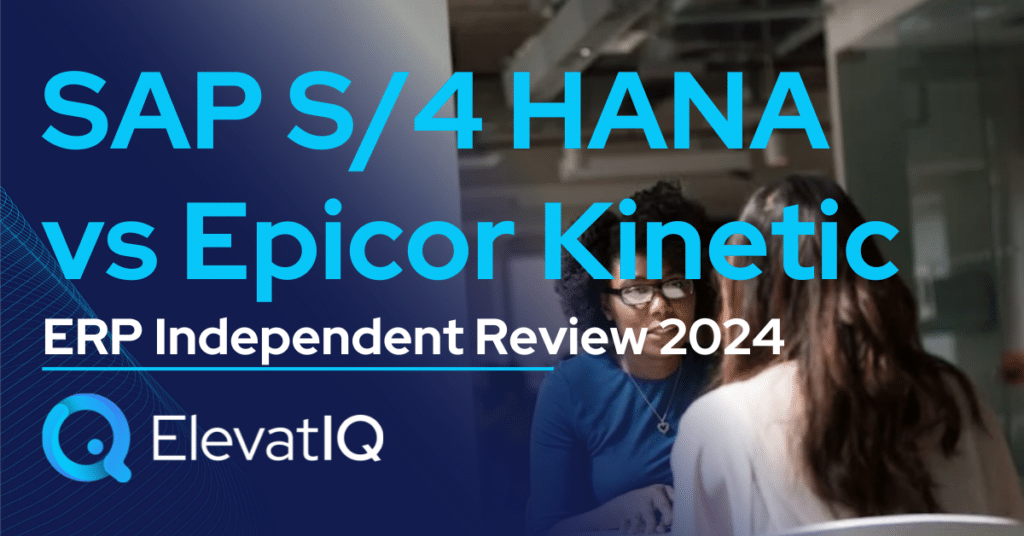For organizations building standalone CRM systems—common in non-ERP-centric sectors—Salesforce often proves to be the stronger option due to its flexible integration capabilities within broader marketing tech stacks. Conversely, SAP C/4HANA is a solid fit for industries like pharmaceuticals and medical devices, where CPQ workflows must adhere to rigorous compliance standards.
However, Salesforce may fall short for companies with highly specialized CRM needs, such as real estate firms or uniquely structured non-profits. In such cases, SAP C/4HANA’s robust security and deep customization capabilities offer greater control and flexibility for managing complex workflows.
Both platforms provide a full range of CRM features, including Sales Cloud, Marketing Cloud, Field Service, Customer Service, CPQ, and CDP. While SAP’s S/4 HANA excels in areas like omnichannel identity resolution and CPQ, it may underperform in customer service and IT service management (ITSM). Salesforce also supports these functions but they aren’t considered its core strengths.
Salesforce and SAP C/4 HANA each offer powerful eCommerce tools as part of their customer experience (Cx) suites, supporting both B2B and B2C operations. Nonetheless, customizing either platform typically requires considerable consulting support, as both lack the low- and no-code flexibility found in solutions aimed at smaller, less technical teams.
To further assess the strengths and limitations of Salesforce and SAP C/4 HANA, let’s explore their features and capabilities in more depth.
What Is Salesforce CRM?
Salesforce is a comprehensive CRM, especially designed for sales teams. It offers marketing automation through the Marketing Cloud. However, integration between sales and marketing can feel disconnected because the Marketing Cloud was acquired. Both Sales Cloud and Marketing Cloud are powerful on their own, meeting the needs of large enterprises. But, Salesforce’s complex data model and customization make it harder to use and implement than simpler platforms like HubSpot. Companies often need specialized consulting to customize Salesforce effectively.
Is Salesforce the right CRM for your industry, or do your unique processes require a more tailored solution? How well does its out-of-the-box functionality align with your sales, marketing, and post-sales workflows? Are licensing constraints or architectural complexities a potential roadblock for your team? While Salesforce offers powerful tools and a vast integration ecosystem—particularly for tech-driven B2B sectors—industries like manufacturing or real estate may find better alignment with alternative platforms. Before making a decision, it’s essential to evaluate technical fit, customization requirements, and potential vendor conflicts. Download the ultimate SAP CRM vs Salesforce comparison guide now to gain deeper insights.
What Is SAP C/4 HANA CRM?
SAP C/4 HANA may not have the breadth or ecosystem reach of Salesforce, but it’s a strong choice for companies using SAP S/4 HANA. Its native integration with SAP’s suite offers seamless process continuity. However, its marketing automation features can be less intuitive, prompting many to use tools like HubSpot or Adobe Experience Cloud. The platform’s complex object model and deep customization require significant consulting. While it integrates well with SAP systems, it lacks pre-built industry editions, which can raise deployment costs and time, especially in sectors like banking or insurance.
Is your organization ready to handle SAP C/4HANA’s rigid processes and data model? Or would a more flexible CRM fit your needs better? Have you thought about the consulting effort and cost of integrating SAP with your current marketing and sales tools? While SAP excels in identity consolidation and CPQ for product-focused industries, does it fit your mobile and AI strategy? How important are ecosystem and seamless integration for your CRM success? Download the ultimate SAP CRM vs Salesforce guide to explore these questions in depth.
Salesforce vs SAP C/4 HANA CRM Overall Comparison
Salesforce offers a flexible and expansive data model, making it suitable for industries with varied and complex workflows. Its ecosystem is widely adopted by MarTech vendors, positioning it as a top choice for integration-heavy environments. On the other hand, SAP C/4 HANA delivers enterprise-grade capabilities—particularly strong in CPQ and sales performance management—while also offering deep integration with SAP’s ERP tools. However, its marketing automation features are limited and often require external tools. Both platforms offer powerful territory and compensation planning but differ in ease of customization, pricing, and user-friendliness, especially for mid-sized businesses.
Does your organization need a CRM that integrates seamlessly with a wide range of marketing tools, or are you prioritizing deeper integration within an SAP-driven ecosystem? How important is intuitive customization versus robust enterprise-level configuration? Are mobile capabilities, AI integration, and predictable pricing major factors in your decision-making process? Understanding how these platforms align with your business processes, user needs, and growth trajectory is essential. Download the ultimate SAP CRM vs Salesforce comparison guide now to explore the full comparison.
Salesforce vs SAP C/4 HANA CRM Module Comparison
Both platforms come equipped with a wide range of features aimed at optimizing business processes and improving operational efficiency. This feature comparison focuses on the unique strengths and capabilities of Salesforce and SAP C/4HANA CRM across key functional areas, offering valuable insights to support businesses in choosing the right CRM solution. Specifically, the section explores core modules, including marketing, sales, customer service, and e-commerce.
Marketing
Salesforce Marketing Cloud delivers a broad set of tools—including content creation, SEO optimization, social media management, email marketing, and advanced analytics—though some features may require technical support to implement effectively. In contrast, SAP C/4 HANA’s marketing capabilities are more limited, with a focus on email marketing and analytics but lacking dedicated support for content creation, SEO, and social media engagement. These differences highlight each platform’s strengths and the potential trade-offs depending on an organization’s specific marketing needs.
Does your marketing strategy rely heavily on built-in tools for content development, SEO, and social engagement? How critical is the ease of use versus depth of analytics in supporting your marketing campaigns? Are you equipped to handle additional technical overhead if your chosen platform requires more configuration? Understanding how each CRM platform supports your marketing function is key to making the right choice. Download the ultimate SAP CRM vs Salesforce comparison guide now to explore these differences in full.
Sales
Salesforce provides a robust suite of sales tools, including advanced lead management with tracking, scoring, and nurturing features. It also offers a customizable sales pipeline, email tracking, meeting scheduling, and collaboration tools like Chatter to facilitate team communication. SAP C/4HANA, while not offering all these features natively, integrates well with other SAP platforms to provide comprehensive CRM capabilities. However, it does not have specific tools for lead management or meeting scheduling and relies on its Sales Order Management component for sales pipeline management.
When evaluating sales functionality, how important are advanced features like lead scoring, email tracking, and seamless collaboration for your sales team’s success? Do you need a highly customizable pipeline, or are simpler solutions sufficient? How does integration with other tools impact your decision, especially if your organization already uses SAP in other areas? Understanding the full scope of sales capabilities in both platforms is crucial for selecting the best fit for your business. Download the ultimate SAP CRM vs Salesforce comparison guide now to gain a deeper understanding.
Customer Service
Salesforce offers a comprehensive suite of customer service features, including case management, ticketing, live chat, and customer support automation through its Service Cloud. Additionally, it supports omni-channel customer service, ensuring consistent experiences across different touchpoints. Similarly, SAP C/4HANA’s Service Cloud includes ticketing and live chat functionalities, as well as automation tools to enhance customer support. It also offers omnichannel support to maintain a seamless customer experience, though it may not have the same depth of features as Salesforce in some areas.
How important are automation tools and live chat capabilities in your customer service strategy? Does your business require comprehensive, omni-channel support, or would a more focused solution suffice? Are you looking for a platform that integrates smoothly with other business systems, or is a standalone solution more appropriate for your needs? Understanding these aspects can help determine the right CRM for your customer service requirements. Download the ultimate SAP CRM vs Salesforce comparison guide now to explore these features in more detail.
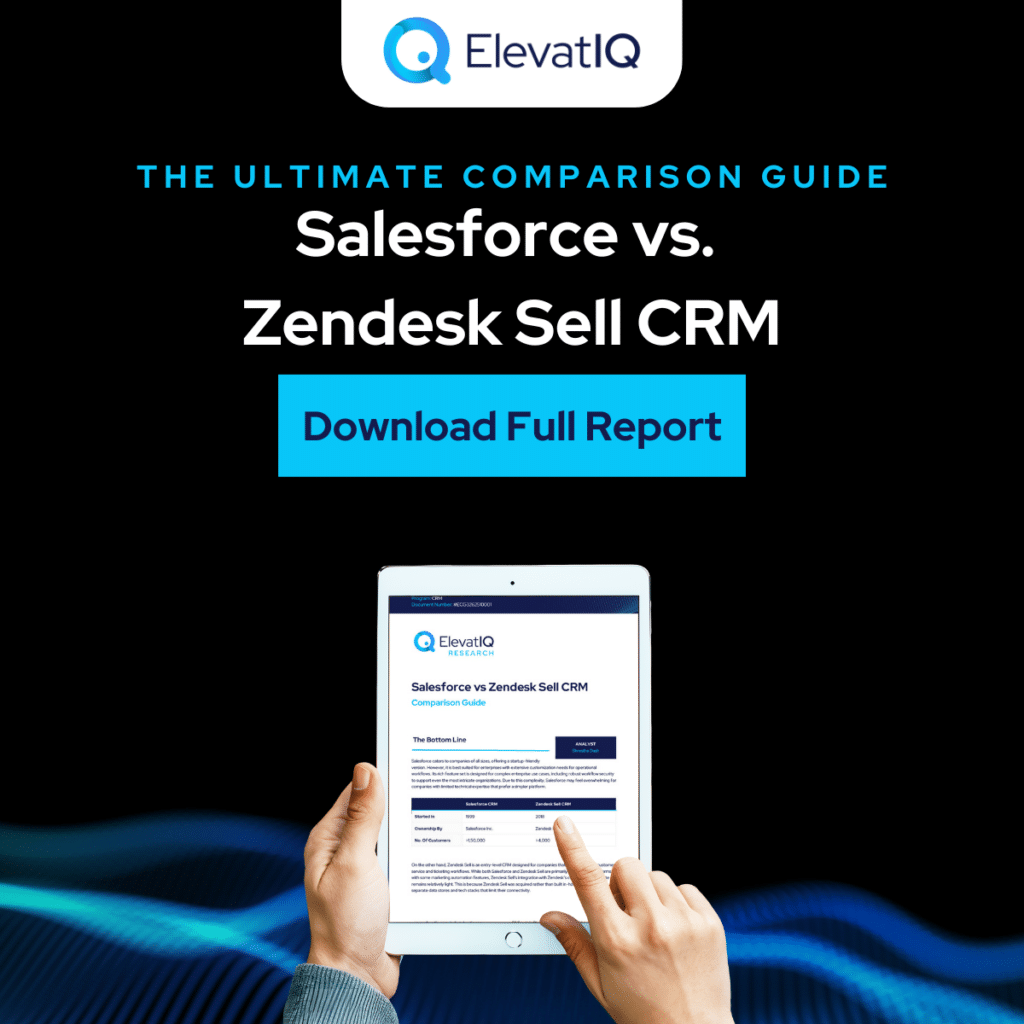
E-commerce
Salesforce provides a comprehensive suite of e-commerce features, including product catalog management, order fulfillment tools, and the ability to create personalized shopping experiences through its Commerce Cloud. Additionally, its analytics and customer data platforms support highly customized shopping journeys. On the other hand, SAP C/4HANA CRM offers robust tools for managing product catalogs and order fulfillment, leveraging components like SAP Commerce Cloud and SAP Marketing Cloud to streamline and automate the order processing experience. While both platforms provide personalized shopping experiences, SAP C/4HANA integrates customer data to tailor these experiences as well.
How critical is personalized shopping to your e-commerce strategy, and which platform better supports these tailored experiences? Do you require a solution with strong order fulfillment capabilities, or is product catalog management more important to your operations? How do the integration capabilities of each platform align with your existing e-commerce tools? Understanding the nuances of each system’s e-commerce features will help you determine the best choice for your business. Download the ultimate SAP CRM vs Salesforce comparison guide now to dive deeper into these capabilities.
Salesforce vs SAP C/4 HANA CRM Pros
Salesforce is known for having one of the most comprehensive data models among best-of-breed CRMs. It also boasts a broad ecosystem and offers extensive customization options for enterprise use cases. On the other hand, SAP C/4HANA stands out with its seamless integration across SAP products, providing a unified experience for organizations using SAP S/4 HANA as their core. It also offers cross-channel personalization and strong identity management features. Additionally, it supports complex compliance workflows, such as those required by GDPR, CCPA, and LGPD, with audit-ready capabilities.
When evaluating these two platforms, how important is tight integration with your existing systems, particularly if you already use SAP products? Do you require a more customizable CRM to fit enterprise-specific workflows, or are you looking for a solution with broader cross-channel personalization and compliance features? How do the ecosystems of each platform align with your business needs? Understanding these distinctions can help you choose the CRM that will best support your organization’s objectives. Download the ultimate SAP CRM vs Salesforce comparison guide now to explore these capabilities in detail.

Salesforce vs SAP C/4 HANA Cons
Salesforce, while excellent for ad-hoc workflows, can be costly to customize and may not offer the same level of sophistication in pre-sales processes, such as marketing automation. Its data model can be restrictive for sales and marketing teams that need more fluidity to focus on sales rather than operational details. Additionally, it may not be the best fit for small to mid-size organizations or those requiring deep integration with ERP systems. On the other hand, SAP C/4HANA CRM, while robust, may feel unnatural or overly complex for smaller organizations. It also requires significant consulting support for customization, particularly when maintaining data layers and enabling the required workflows.
When considering the limitations of both platforms, how important is the ease of customization and adaptability to your business? Are you seeking a CRM solution that integrates seamlessly with your existing ERP systems, or is a more standalone option sufficient? How critical is a smooth pre-sales process, and how do you envision your team utilizing the CRM’s data model? Assessing these factors will help clarify which platform best suits your needs. Download the ultimate SAP CRM vs Salesforce comparison guide now to dive deeper into these challenges.
Download the Full Research Report
